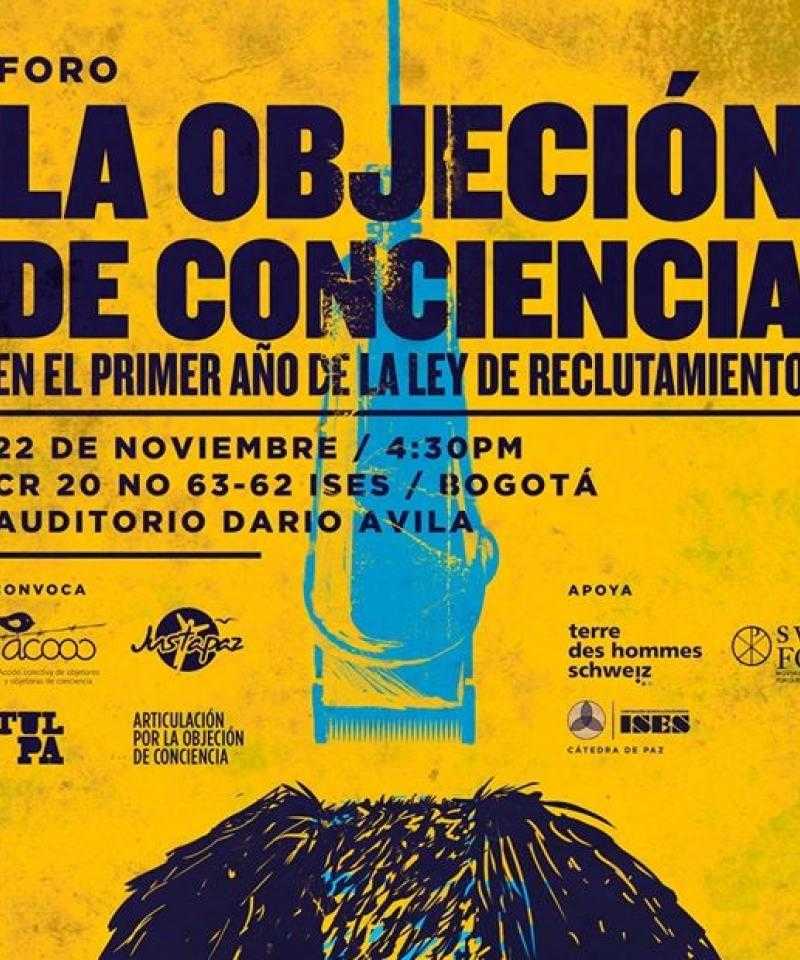Conscientious objection forum in Colombia: One year after the new recruitment law

On November 22, in Colombia, ACOOC, Justapaz, La TULPA Collective and the Anti-militarist Articulation organized a public forum, during the International week of Action Against the Militarization of Youth, to discuss the law of recruitment that regulates the Conscientious Objection in Colombia, one year after its approval. As part of the event, the organizations released a report that evaluates the implementation of the law and its impact on conscientious objectors.
The forum began with a general context of Law 1861 of 2017 (The Recruitment Law), recognizing the active participation of the movement of conscientious objection in Colombia in this law. Subsequently, three young men shared their experience as conscientious objectors: two of them appealed to conscientious objection when they had already been recruited and were doing the military service and one of them did it when he was in the last grade of the school and later in University. Finally, the information contained in the report was presented, emphasizing that Objection of Conscience is a right that is not known by Colombian society and young people in general, highlighting how important it is to think about strategies to continue promoting conscientious objection among the youth of the country.
Some of the advances and achievements that this report indicates regarding this law are:
- Between August 2017 and October 2018, 422 conscientious objectors applications were filed: 1) 332 applications belong to conscientious objectors who refuse to perform military service for religious reasons. 2) 90 requests for ethical, moral, philosophical or political arguments.
- After the law was passed, there was a significant increase in requests by conscientious objectors..
- The Public Ministry was made part of the interdisciplinary commissions that receive and evaluate the requests of conscientious objectors (that is conformed of three members of the Military Forces)
- There was an increase in the recognition of young people as conscientious objectors.
The difficulties and problems that have arisen in the application of the law were also pointed out:
- There is no impartial, technical and legal instrument that guarantees neutrality in decisions of the Interdisciplinary Commissions.
- Human Rights Organizations report that delegates from the Public Ministry are not always invited, which is worrisome because this body is in charge of ensuring the protection of the rights of conscientious objectors on the Commissions.
- There is no strong divulgation of the right to conscientious objection by educational entities, the Public Ministry Office and the Military Forces.
- The type of document certifying the definition of a military situation as conscientious objectors is not yet clear. It can not continue being the military card since when purchasing it, young men become part of the reserves and the exclusion of the objectors of this category is part of the guarantees of protection of its right at all times.
You can check the full report in Spanish here.
Add new comment